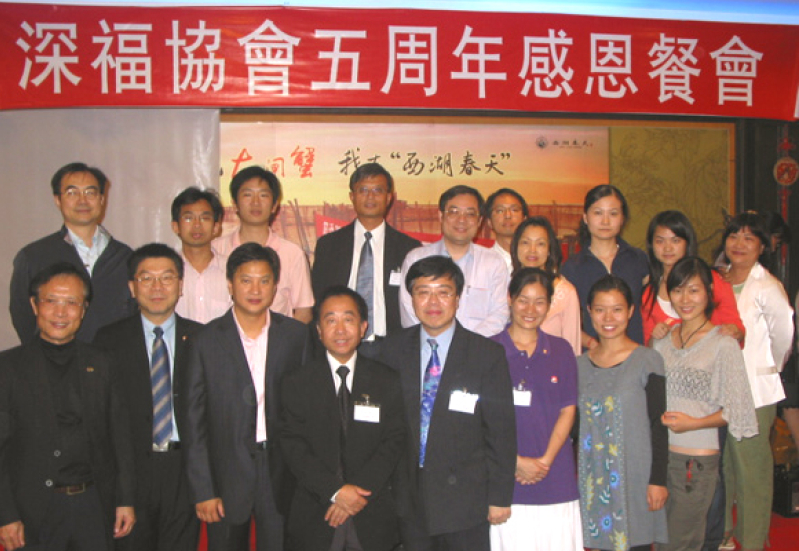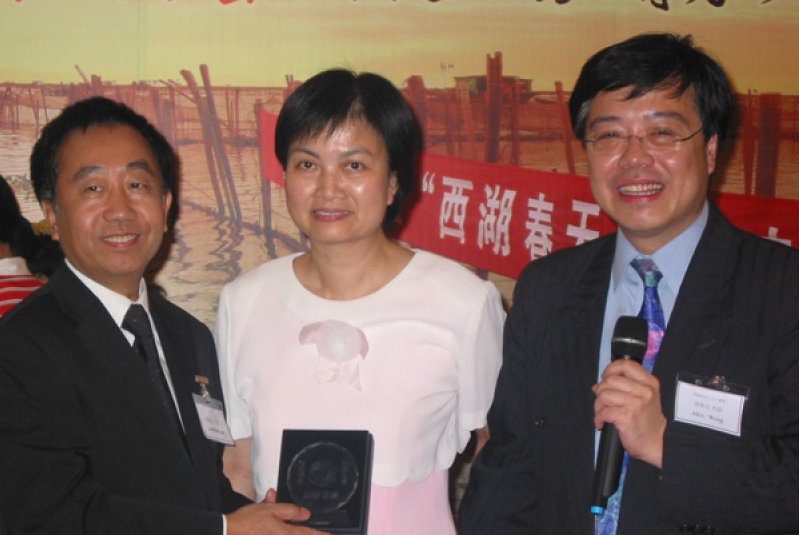

According to statistics, the number of Hong Kong natives in China reached to 470,000. Among this group of people, many are separated from their families; face temptations of extramarital affairs; have problems with work distribution between family members, problems between parents and children, and problems in the adaptation of their psychological well-being. That is why they are in need for much care and assistance. With the vision to service the workers from the northern part of Shenzhen to the Huanan district, Pishon Association has come a long way beginning five years ago.
On the night of Nov. 6, Gospel Herald reporter interviewed the senior pastor and the managing director of Pishon Association, Rev. Weichen Huang, to understand the initial motive for starting Pishon Association and the difficulties and comforts that they experienced through the past five years of service. (R: Reporter; H: Rev. Huang)
R: Can you share with us the motive and the process of how Pishon Association started?
H: In 2001, I was still working at a church at a church in Hong Kong, and our church would often times visit mainland China. On the trip back from mainland China, we discovered that many young people work in Quandong and also many middle-aged men from Hong Kong now work in Shenzhen. I got in touch with some believers who worked in mainland, and asked them about their work. They said they feet lonely working there and face many problems. Because of that, we started offering them support by creating small group meetings with the staff workers in this area once every two weeks. We shared with one another the working conditions, mutually encouraged one another, and they all thought that it was very good.
In 2003, we continued to gather. Through much sharing, we discovered that there are many people here that are in need of care, ministered to, and for someone to help reduce their burdens. During those times, the sisters in the church outnumbered the brothers, so I ended up serving the sisters most of the time. Because I am a brother, I know much better about the needs of a brother and hope to share more with brothers. I reflected that when I first began this job, it was based upon this heart of compassion, but I started to feel that it was the calling of God to be involved in this. Therefore, starting Jun-Jul. in 2003, we started to systematize the ways we work. There are five brothers: two of them owned factories, one of them was in charge of management, one of them was the CEO of an American-based company, and my work was primarily ministering at the church.
R: How did the name “Pishon” come about?
H: At that time, we went to the churches that we are familiar with to give sharing and felt that we were like the Rabbis of the Jews in the Bible: the Israelites traveled to different places, and they would setup synagogues there, their rabbis would stay together with them, teaching them and testifying God there. When troops were send out, the military chaplains would provide support for those fighting the war. Therefore, we were called Rabbis in the beginning; but it was then changed to the “moving ministers”; then we created an association called Pishon Association, and we then called ourselves ministers.
Why was it called Pishon? Because most of people who we met in mainland were from Shenzhen, so we prayed that God can “Bless Shenzhen”; at the same time, we hope to become the source of blessing for the people in that area, giving them “abundant blessings”. On the other hand, the English name was taken from Genesis 2, where the river, Pishon, surrounded the area of Havilah, which have gold, and that gold in that land was good; there were also aromatic resin and onyx…“ We thought that Pearl River Bermuda, the place where we were, was where many people gathered to develop their business. We believed that those who do business there will experience the harvest that God wants to give to them, and that was why we adopted the English name, Pishon.
R: Looking at the information, we know that Pishon Association has developed into twelve locations. What was the process?
H: The association officially began towards the end of 2003, where the networking began. Until the beginning of 2004, we primarily went to Shenzhen. In 2004, some people said they often times stay in Dongguan and they have factories there, but their families are in Hong Kong, so we tried to go to Dongguan. Half hour into the trip to Dongguan, we passed through Zhangmutou, which is nicknamed “Little Hong Kong”, because of the large number of Hong Kong natives working there. In 2004, we started in Zhangmutou. After many people coming by regularly, we started gathering at Gangxia……
In the beginning, I thought that if I cannot find firm supporters in a year or two, then I will give up. So I prayed, “God, if you are willing, then please prepare for us. If it is not your will, then we know that there won’t be anything provided.….” Thank God, some coworkers began to participate one after the other. Even brothers and sisters who have ministered before supported this job. When the coworkers, support came, that was when we were able to run much farther. Now, we go to Zhongshan, Pun Yue, and everywhere else where Hong Kong natives travel we will travel.
R: How many ministers were there when the association first began? How did you come to have three ministers?
H: When it first started, I was the only minister. In the beginning of 2005, Mr. Chong came. He used to be a full-time staff at a church in Hong Kong, and had a burden for the brothers in Hong Kong who works here, so he got involved this job and carried the burdens together with us. Surprisingly, Minister Lin is Minister Chong’s friend from school. After Minister Chong, Minister Lin would come to visit. So I said, “You should come also to help, then we can work together.” Minister Lin used to work in a computer software company in Shenzhen, and has received significant theological trainings and has more than 10 years of pastoral experiences….these were things that happened in 2005. Minister Chong came towards the beginning of 2005, while Minister Lin came around Aug. and Sept in the same year.
R: It must be really difficult to serve a moving group of people. Among these difficulties, what is the most challenging?.
H: The greatest challenge that we faced was that the problems that these brothers and sisters faced were much more complicated then we envisioned. Even the average problems were very complicated. For those who were already in a mess, we were afraid to take care of them. It was not easy for us to follow up. Another thing was that we were traveling too much.
We have gatherings at many locations, and the distance is very far, so we spend a lot of time traveling. Sometimes the gathering won’t finish until 10pm, and by the time that we’re on the bed sleeping it would be 1-2am. If this kind of schedule lasted for just a week or two, it would not be a problem. However, if more than a dozen weeks in a year were like this, then there would be problems, so that is why we slowly dropped most of our work in Hong Kong in order to focus on the work in mainland.
R: What touched you the most in this period of service?
H: In the time of service, the thing that touched me the most is to see a person’s life change through our care and concern and to see his life transformed by the life of Christ. Some people did not come to the gathering for a long time, but once their spirituality became renewed and their values and perspective changed, then they would really have the fragrance of Christ inside of them. We discovered that this became really big comfort to us. These people now actively share their faith with others. Seeing their change, we also have this deep gratitude in our hearts.
(to be cont'd with interview part II)
[Editor's note: the interview was conducted by reporter Yeajin Wang in Shenzhen, China.]






